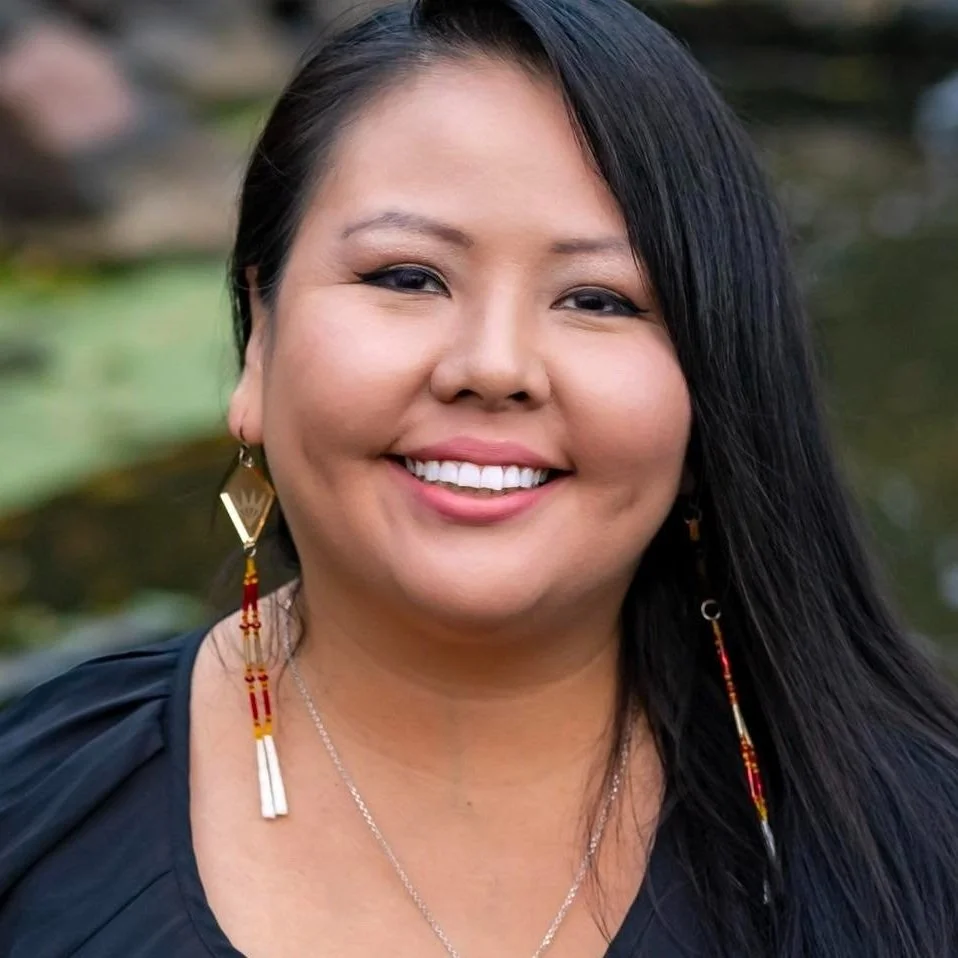tiana lapointe
Convergence Filmmaker
biography
Tiana LaPointe, an Indigenous Documentary Filmmaker and Teaching Artist. She is Sicangu Lakota and was born on the Rosebud Reservation in South Dakota. In her formative years, Tiana grew up in Puget Sound, Washington State and the San Francisco Bay Area. Her passion for indigenous media arts at an early age In high school led her to name and co-develop, “Through the Eagles Eye” video curriculum. She’s a recipient of the Sundance Institute Knight Fellowship and the Jerome Foundation Travel and Study grant. She is a Co-convener for Mni Ki Wakan: Decade of Water Summit.
Tiana's work is critical to telling a comprehensive story on indigenous water governance. Her documentary short, “Mni Ki Wakan: Water is Sacred” is still a work in progress. It was screened October 2019 in San Fransisco’s American Indian Movement International Film Festival. Her film was also screened Spring 2019 at The Tank in New York City to Indigenous delegations who attended the U.N. Permanent Forum on Indigenous Issues. She connects story and technology to the powerful images of Mother Earth. She is a American Indian Movement West Delegate.
Alongside her family, Tiana advocates for indigenous human rights through a series of initiatives and at the United Nations Permanent Forum on Indigenous Issues. She has worked with over 500 Indigenous and non indigenous youth creating video shorts on social justice issues, cultural stories, community, and family histories. She has consulted with numerous indigenous people, artists, programs, organizations and foundations such as the Tiwahe Foundation, Migizi Communications, ArtStart, In Progress, American Indian Cancer Foundation, Barbara Schneider Foundation, East Side Arts Council, Mni Ki Wakan and more. As part of the global indigenous community, Tiana is increasingly developing upon media projects with the Innu tribe from the sub-arctic, and Maori relatives from New Zealand. She has been mentoring youth and adults at In Progress since 2016.
GOALS
Complete a new film project by beginning production in late summer, finishing editing by winter, and submitting the final work to a film festival.
Expand collaboration by integrating other artists into future projects and exploring traditional Indigenous teachings and ceremonies as creative inspiration.
Enhance technical filmmaking skills, including camera settings, lighting, and post-production workflows.
Grow professionally through grant writing, budgeting for small crew productions, and building confidence in public presentation and outreach.
Strengthen professional networks with a focus on Indigenous-led forums and past collaborators from the Mni Ki Wakan Water Summits.
Objectives
Project Development and Completion
Begin filming in late summer or early fall.
Complete post-production by winter.
Submit the final work to a film festival.
Creative and Collaborative Growth
Invite other artists to participate in future productions.
Explore sacred locations, healing plants, and nature in visual storytelling.
Write scripts inspired by traditional teachings and ceremonies.
Technical Skill Building
Practice manual settings on a photo camera.
Improve lighting techniques for portraits and reenactments.
Use a dolly and monitor during filming for visual consistency.
Learn drone operation for B-roll and wide shots.
Explore Final Cut Pro tutorials to expand editing techniques.
Professional Development
Apply for at least one grant.
Create a mock budget for hiring a small production crew.
Update artist bio, resume, and work samples.
Build confidence in public presentations through scriptwriting and website completion.
Mentorship and Feedback
Schedule regular check-ins to support progress and goal tracking.
Seek mentorship in key technical areas and grant budgeting.
Receive constructive feedback during the editing process.
Professional Support
TJ Lor – mentorship on manual camera settings and DSLR techniques.
Tong Lee – guidance in lighting setups and visual style development.
Kristine Sorensen - support in budgeting and applying for grants.
Indigenous Delegates from the UN Permanent Forum on Indigenous Issues – potential collaborators for future projects, building on relationships formed at the Mni Ki Wakan Water Summits.
Links
website - pending
